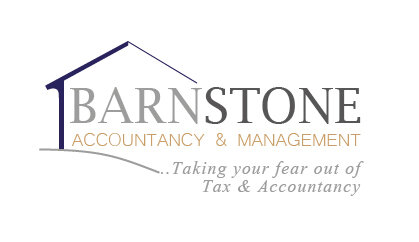
Self Assessment
Barnstone is one of the leading Financial and Legal companies, as listed within the TimesOnLine
Trust Barnstone Accountancy in Leicester for expert tax return accountant services. With over a decade of experience, we simplify the process, freeing up your time.
Why choose Barnstone Accountancy as your tax return accountant in Leicester
Completing your Self-Assessment paperwork can be a daunting prospect, especially if you’re completing it for the first time. In order to make things easy for you, Barnstone can help you to register with HMRC for Self-Assessment, assist in preparing all of the necessary information, set up your Government Gateway account, complete all mandatory and supplementary pages - we’ll even submit the return to HMRC on your behalf.
Do I need to complete a Self Assessment tax return?
If you are receiving income that is not taxed at source, it is likely that you will need to complete a Self Assessment Tax Return. It is called Self Assessment as it is your responsibility to work out how much tax you need to pay. This will need to be completed every year to show HM Revenue & Customs (HMRC) what your taxable income is.
HMRC require you to submit a Self Assessment tax return if, within the last tax year you were:
self-employed and earned more than £1,000 (before expenses)
a partner in a business partnership
a director of a Company.
You may also be required to submit a Self Assessment tax return if you received any other untaxed income - for example, money from renting out a property, tips and commission, income from savings, investments & dividends or pension income.*
*Please be aware: There are other scenarios where HMRC may require you to submit a Self Assessment tax return.
Barnstone Accountancy is here for anyone looking for a trusted tax return accountant services in Leicester. We have over ten years of experience with providing expert support with filing tax returns and can help you free up time to focus on the things that matter to you and your business.
No fuss, jargon free and easy to understand.
Self Assessment FAQs
1. When should I submit my Self Assessment?
If you’re submitting a paper return, the deadline is 31 October. For online returns, it’s 31 January following the end of the tax year (which runs from 6 April to 5 April). Filing early gives you more time to plan for any tax owed and reduces the risk of last-minute issues. Check deadlines here.
2. How to complete a self-assessment tax return?
To complete a self-assessment tax return, you’ll first need to register with HMRC, especially if you’re self-employed or filing for the first time. Once registered, log in to your Government Gateway account and start your return.
You’ll need details of all income earned during the tax year, this might include employment income, self-employment profits, rental income, dividends, or interest, as well as any expenses or allowances you’re entitled to claim.
It’s helpful to gather your P60, invoices, receipts, bank interest statements, and other supporting documents before you begin. If you’re unsure or your affairs are complex, a qualified accountant or tax advisor can help ensure everything is submitted correctly.
3. How to view past Self-assessment tax returns?
To view previous returns, log into your HMRC online account using your Government Gateway details. Under ‘Self Assessment’, select ‘More Self Assessment details’ and then view returns from previous tax years. It’s a good idea to keep copies for personal records, especially if applying for finance or mortgages.
4. Who needs to fill in a self-assessment tax return?
You must file a self-assessment tax return if you’re self-employed, a sole trader, or a partner in a business and earn more than £1000. But it’s not just for business owners, anyone with untaxed income may need to submit one.
This includes people earning over £150,000, landlords receiving rental income, investors with dividend income, or those earning money from overseas sources. You’ll also need to file if you’ve received income through the High Income Child Benefit Charge, made capital gains, or have complex tax reliefs to claim.
In some cases, HMRC may ask you to complete a return even if you think you don’t need to.
5. Is a Self-Assessment the same as a tax return?
A Self-assessment is the process by which HMRC collects Income Tax from individuals whose income isn't taxed automatically. The tax return is the form you submit as part of this process. In everyday use, the terms are often used interchangeably, but Self-assessment refers to the system as a whole.
6. What happens if I miss the Self-assessment deadline?
To avoid penalties, HMRC must receive your Self Assessment tax return and any tax owed by the deadline. Paper returns are generally due by 31 October, and online returns by 31 January.
If you're new to Self Assessment, register by 5 October. Tax payments are also due by 31 January, with a second deadline on 31 July if you make payments on account. Late returns or payments can result in penalties and interest. You can appeal if you have a valid reason. Estimate your bill early to budget and pay on time.
7. Can I amend my tax return after submission?
Yes, you can amend your return up to 12 months after 31 January of the tax year it covers. Simply log into your HMRC online account and select the relevant return to make corrections. This can be useful if you forget to include income or overestimate expenses.
8. What is the HMRC Self-Assessment tax return?
The HMRC Self Assessment tax return is used to collect Income Tax from individuals whose income isn’t fully taxed through PAYE, such as the self-employed, landlords, company directors, or those with multiple income sources.
You’re responsible for calculating and reporting your income, claiming allowable expenses, and paying any tax owed. Returns can be filed online or by paper, with different deadlines.
While HMRC offers online guidance, you must ensure everything is accurate and submitted on time. If your tax affairs are complex, it’s a good idea to get support from a qualified accountant or tax advisor.


